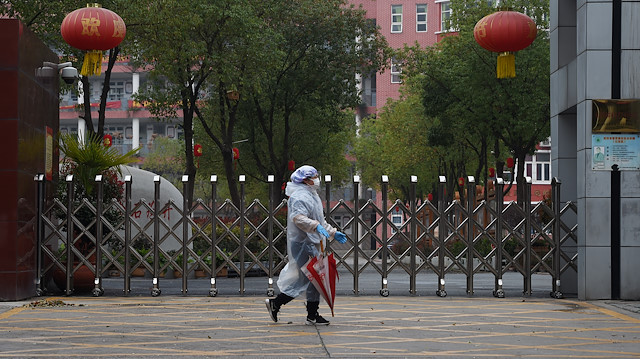
Gao Zhengliang, vice-director of the China Cell Biology Institute told the official Youth Daily newspaper that the country had now completed "99 out of 100 steps" required to defeat the coronavirus, though he warned that if global infections spiralled out of control, "the costs and sacrifices China has made will be downgraded."
Some experts have referred to the infection patterns of the devastating 1918-19 influenza epidemic that killed more than 50 million people during three different waves, with the second the deadliest. However, Henderson said it was important to recognise the current virus was different from influenza.
Global inter-connectedness means that instead of coming in waves, new viruses are now more likely to spread and circulate until they mutate or until a certain level of immunity is reached. One crucial issue is how long a previously infected patient remains immune.
"The number one point to get across is that in terms of the behaviour of this virus we are still very much in the dark," Henderson said. "The issue around protective immunity is difficult to answer because we simply do not have sufficient information."
Some experts have raised the possibility that COVID-19 could become an entrenched seasonal illness along with ordinary influenza.
Preliminary studies have shown a possible correlation between the epidemic and climate patterns. A paper produced by researchers in Europe this week said the coronavirus preferred cool and dry conditions which could lead to seasonal global outbreaks "much like other respiratory diseases".
However, there have still been cases in warmer and more humid climates in southeast Asian countries, including Thailand and Singapore.
U.S. President Donald Trump has been one of many to suggest that COVID-19 could go away of its own accord as temperatures rise in the northern hemisphere.
However, Marc Lipsitch, a communicable disease expert at the Harvard T.H. Chan School of Public Health, said while warmer and wetter weather could reduce the contagiousness of the coronavirus, "it is not reasonable to expect those declines alone to slow transmission enough to make a big dent."
Gao of the China Cell Biology Institute said given the higher fatality rate for the coronavirus, relaxing curbs was not an option.
"The resolute curbs on the coronavirus must be continued, it absolutely cannot be allowed to co-exist with humans in the same way as the influenza virus."














